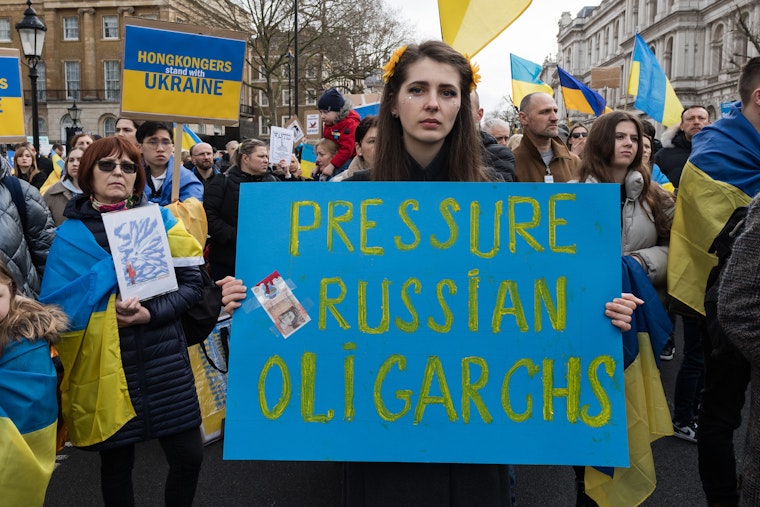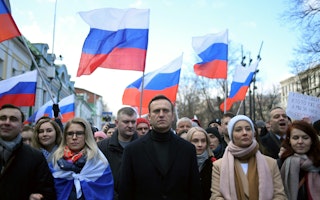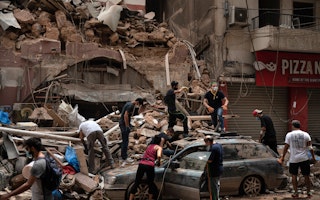A Global Forcefield of Accountability
By Amanda Strayer & Tinatin Tsertsvadze

The effects of corruption and the erosion of human rights exact high costs on countless countries, often hitting the poorest communities hardest while perpetrators often evade justice, hiding in plain sight. The countries where these injustices occur often lack institutions robust enough to tackle the problems at their source. And so global powers are developing tougher tools to fight corruption and human rights abuses to help fill the void. Their success rests on effective coordination between governments and strong cooperation with civil society.
Sweeping sanctions are a prime example of these emerging anticorruption tools. Named after tax lawyer Sergei Magnitsky, whose uncovering of a deep web of corruption in Russia led to his imprisonment and death in 2009, these sanctions are aimed at the operations of hundreds of kleptocrats and human rights abusers. What defines Magnitsky sanctions is their targeted nature. Rather than focusing on states, they home in on individuals and entities anywhere in the world. Assets are frozen, visas are denied, and links to the sanctioning jurisdiction’s financial system are severed. The goal is to weaken rights violators as much as possible and bring them ever closer to accountability for their crimes.
This type of sanctions was first rolled out in late 2017 by the United States government. Their target: more than a dozen crooked businessmen, politicians, and law enforcement officials across Latin America, Africa, Asia, and Europe involved in such criminal activity as plundering state assets, bribery, extrajudicial killings, and sexual violence. Since then, similar programs have been launched by 11 more jurisdictions including Canada, the United Kingdom, and the European Union. Despite the promising start, the effort five years on is being hampered by deficiencies in certain key areas that urgently need strengthening to prevail in the fight against corruption and repression.
Magnitsky sanctions are most effective when swiftly coordinated across as many jurisdictions as possible—a practice known as “multilateralization.” Hostile actors typically keep their assets in countries protected by the rule of law and an impartial judiciary; locking them out of multiple financial systems simultaneously squeezes the space in which they can operate and prevents them from moving their transactions elsewhere. By streamlining the mechanisms by which they impose sanctions, participating countries can send a strong message in support of human rights and against kleptocrats, hopefully encouraging further accountability.
But how do sanctions come into being, let alone get deployed by the world’s most advanced economies? Though governments have their own investigative methods and resources, they receive crucial assistance from civil society groups. The world is aware of the abuses of entities and individuals thanks in part to the lengthy and painstaking work carried out by organizations often working in risky environments. Whether it be by interviewing victims of torture, tracking corrupt networks, investigating asset ownership or documenting longstanding patterns of violence, civil society plays an indispensable role in building a case for sanctionable abuses.
These organizations also play a vital role in building relationships with policymakers and executing strong advocacy campaigns. In the five years since the U.S. enacted its Global Magnitsky Sanctions, at least one-third of the times they've been deployed were based on recommendations from civil society groups. The UK and the EU appear to have been less responsive to civil society recommendations in their sanctions decisions. It is very much in these governments’ interests to broaden and deepen their engagement with this sector.
While Magnitsky-style sanctions were designed to know no borders, in reality they are not always distributed equally. The South and Central Asia region has received little attention from the U.S., UK, Canada, and the EU, despite being home to some of the least free nations in the world. Underrepresented regions should always be in the forefront of policymakers’ minds. Similarly, jurisdictions with these sanctions programs should not shy away from holding their allies accountable. The credibility of these sanctions depends on their being applied widely and equitably.
A great deal of work has gone into clipping the wings of some of the world’s worst offenders. The key lies in a coordinated front. The EU is currently unable to fully engage in “multilateralizing” sanctions because it does not designate corruption as an offense that warrants targeting, though it does so for human rights. An uneven approach to sanctioning means that alleged perpetrators targeted by one jurisdiction can merely shift their ill-gotten gains to another—allowing them to purchase tools of repression in a friendly territory and use them to abuse their own people back home.
The strength of coordinated action was on display when the U.S., UK, Canada, and the EU imposed same-day sanctions against Chinese officials accused of presiding over the persecution of Uyghurs in Xinjiang. Another innovative approach is for a jurisdiction to not only pursue the direct culprit but also the network facilitating the wrongdoing. In 2017, the Israeli businessman Dan Gertler was sanctioned by the United States for corrupt mining and oil deals in the Democratic Republic of the Congo, as were dozens more connected individuals and entities.
Those around the world who commit human rights violations and steal from their societies should face a global forcefield of accountability. By establishing and coordinating solid sanction regimes, the space for thieves and tyrants begins to disintegrate, and justice for the victims of corruption and persecution comes closer.
Human Rights First is a grantee of the Open Society Foundations.
Amanda Strayer is supervising staff attorney for accountability at Human Rights First.
Tinatin Tsertsvadze is a senior policy analyst with Open Society—Europe and Central Asia.


